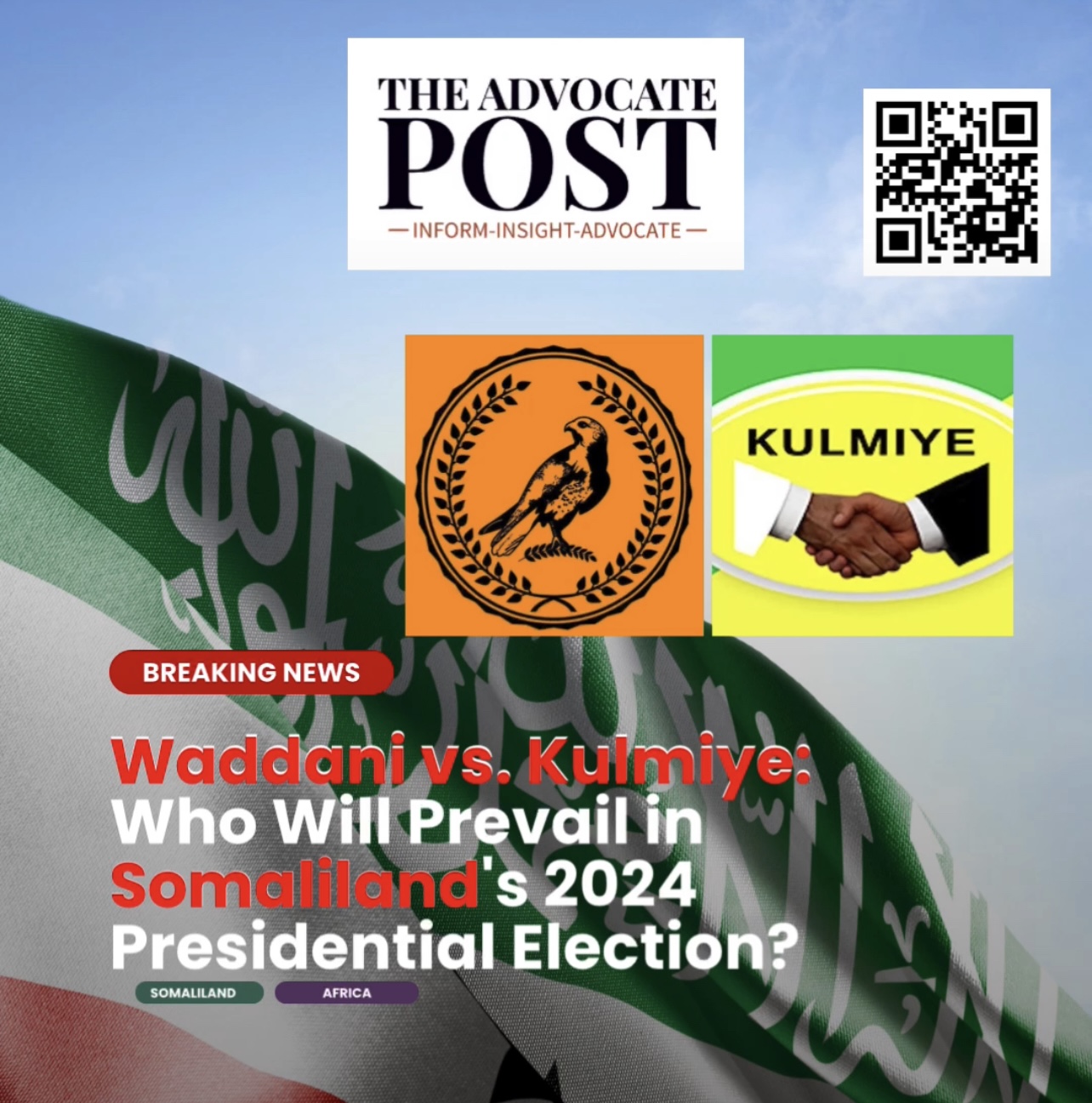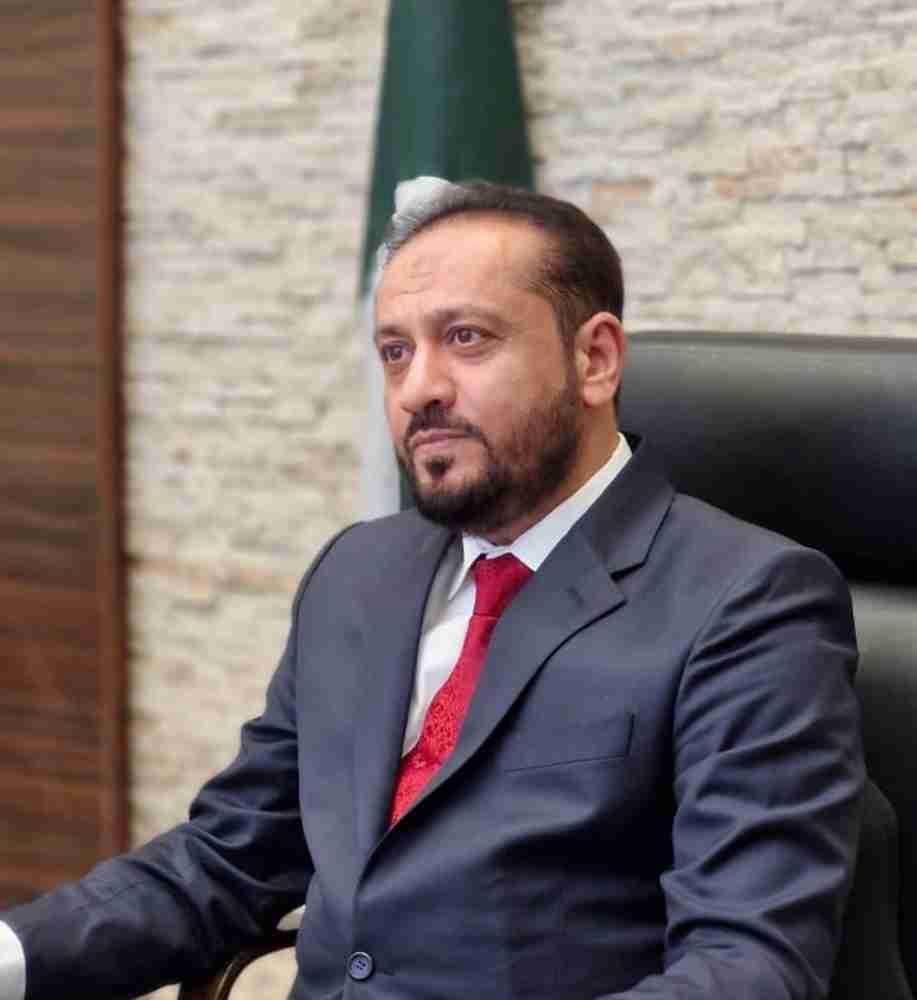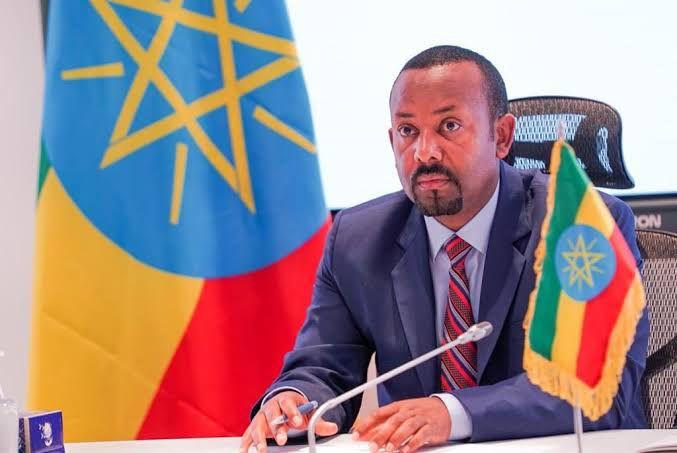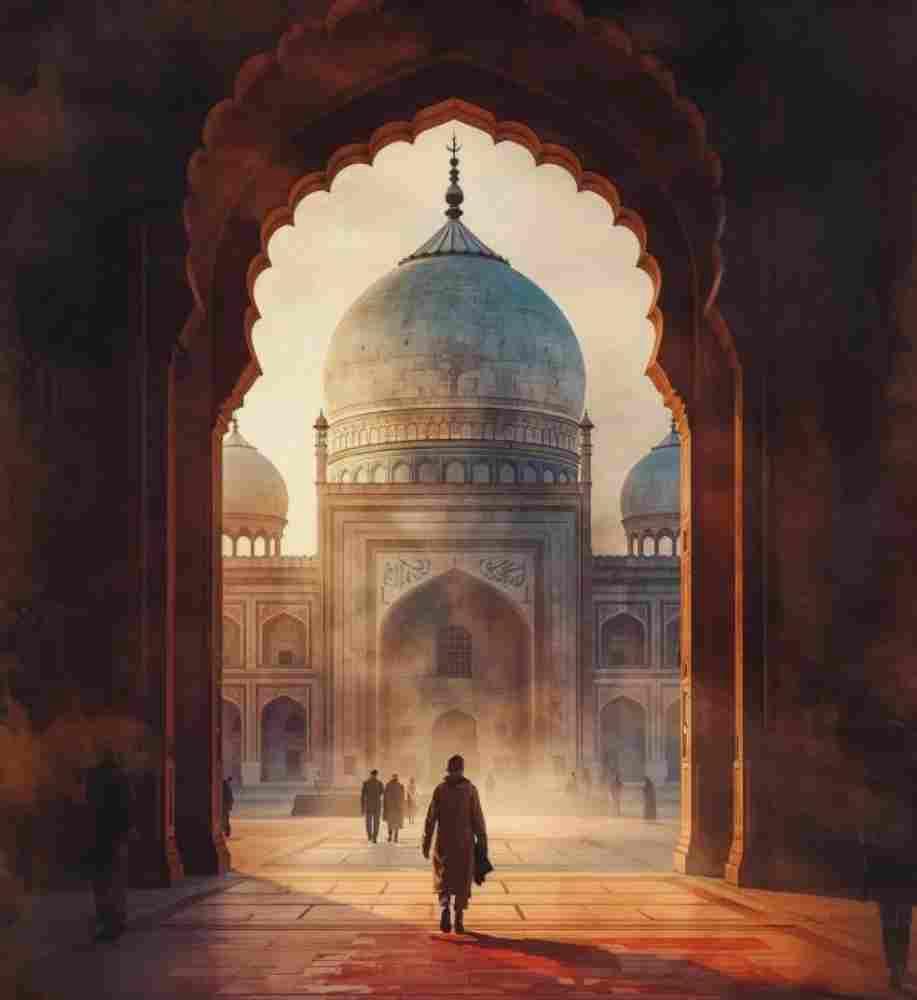News Desk
Hargeisa: As Somaliland approaches its highly anticipated presidential election, two dominant political parties, Waddani and Kulmiye, are vying for control in a race that could shape the country’s political and economic future. The election, expected to take place later this year, has energized the population and intensified discussions about the nation’s path toward greater stability and potential international recognition.
The Contenders: Waddani and Kulmiye
The Waddani party, known for its focus on democratic reforms and transparency, is positioning itself as a voice for the younger generation and Somaliland’s marginalized communities. Led by Abdirahman Mohamed Abdullahi, commonly known as “Irro,” Waddani has promised economic reforms, a stronger push for international recognition, and improvements to education and healthcare. The party has built a significant following among youth and urban voters, who are eager for change and greater representation in government.
On the other side is the Kulmiye party, currently in power, led by President Muse Bihi Abdi. With a record of overseeing Somaliland’s steady economic growth and security improvements, Kulmiye has highlighted its experience and stability as key assets. Under Kulmiye’s leadership, Somaliland has strengthened ties with neighboring states, bolstered its security forces, and invested in infrastructure projects like the expansion of the Port of Berbera. Bihi and his supporters argue that continuity and experience are essential for maintaining Somaliland’s current trajectory.
Key Issues: Economy, Security, and International Recognition
Economic growth, security, and the long-standing quest for international recognition are central to this election. Somaliland has maintained peace and stability since declaring independence from Somalia in 1991, but it remains unrecognized on the global stage. Both parties have promised to redouble efforts to secure formal recognition, which they argue could attract foreign investment, open new trade routes, and help Somaliland participate more fully in the international community.
Waddani has criticized the current administration’s handling of economic inequality, pointing to unemployment rates and limited job opportunities for young people. The party aims to diversify the economy beyond traditional industries, focusing on technology, education, and the private sector to create more jobs and reduce poverty.
Kulmiye, meanwhile, has defended its record, citing economic resilience despite a lack of international support. The party believes it is best positioned to continue driving Somaliland’s progress, especially in areas like security and foreign relations, which they argue are crucial for economic stability and attracting investment.
Voter Sentiment and Pre-Election Polling
With the election season well underway, Somaliland’s voters are sharply divided. Preliminary polling suggests a tight race, with neither party holding a decisive lead. Waddani’s appeal among younger voters could be a critical factor, as nearly 70% of Somaliland’s population is under 30, making them a powerful demographic force. Youth-driven campaigns and rallies have injected fresh energy into Waddani’s bid, and the party has tapped into calls for a more inclusive government.
Kulmiye, however, remains popular among older voters and those in rural areas, where President Bihi’s reputation as a leader with a steady hand resonates. Many supporters feel that Kulmiye’s stability-first approach has kept Somaliland secure and prosperous despite a challenging regional environment.
The Road Ahead: Potential Outcomes and Regional Impact
The outcome of this election will have implications beyond Somaliland’s borders. The Horn of Africa faces ongoing security challenges, from terrorism to piracy, and a stable, economically viable Somaliland could play a strategic role in promoting regional stability. Observers note that if Waddani wins, the party’s fresh approach may lead to policy shifts, while a Kulmiye victory could mean continuity and a deepening of Somaliland’s existing partnerships, particularly with the UAE, Ethiopia, and Djibouti.
Both Waddani and Kulmiye have publicly committed to respecting the election results and ensuring a peaceful transfer of power if needed, a pledge that is seen as essential for preserving Somaliland’s reputation as a rare example of democratic governance in the region.
What’s Next?
As the election date approaches, both Waddani and Kulmiye are ramping up their campaigns, focusing on town halls, media appearances, and grassroots outreach to sway undecided voters. Meanwhile, Somaliland’s citizens are carefully weighing their options, understanding that their choice will influence the nation’s future direction.
With high stakes and a deeply engaged electorate, the world will be watching as Somaliland heads to the polls. The outcome of this contest between Waddani and Kulmiye could determine whether Somaliland remains on its current path or charts a new course towards greater inclusion, economic growth, and international recognition.





